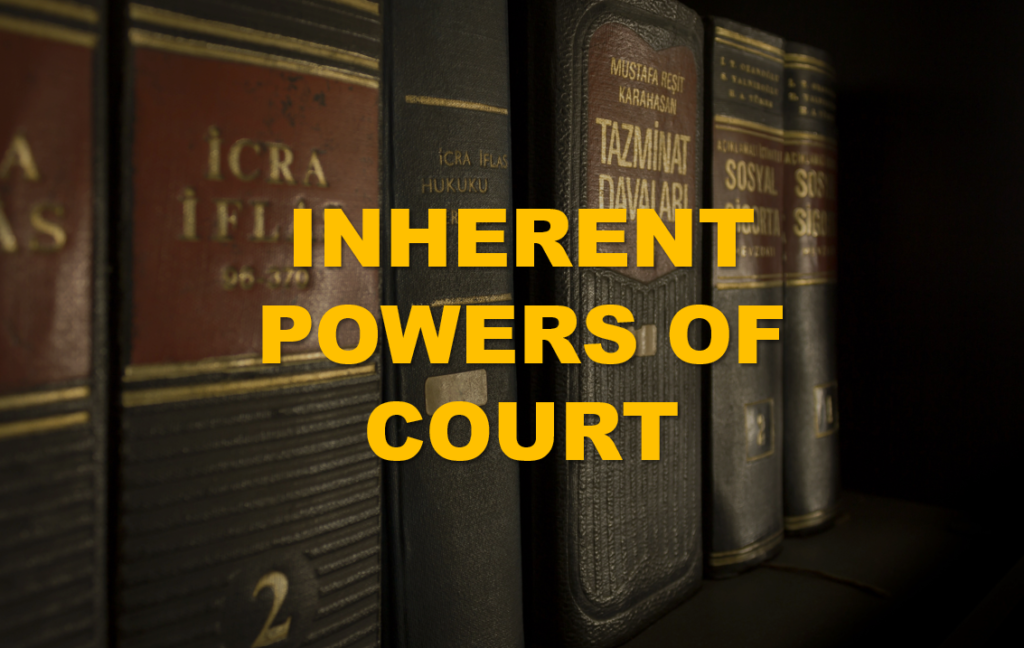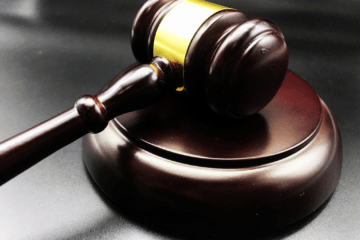
Introduction
The term “inherent” means “natural” or “existing and inseparable from something. Hence, as the term suggests inherent powers are those powers which may be exercised by a court to do full and complete justice between the parties before it.
Every court is constituted certain powers for the purpose of administering justice between the parties. All such powers are necessary to do the right and to undo the wrong in the course of administration of justice. Such powers are complementary in nature and the court is free to exercise them for the ends of justice or to prevent the abuse of powers of court. Such powers are known as “inherent powers of the court.”
The provisions of the Code are not exhaustive for the simple reason that the legislature is incapable of contemplating all the possible eventualities and circumstances which may arise in future legislation. These inherent powers come to rescue in such unforeseen circumstances. They can be exercised ex debito justitiae in absence of express provisions in the Code.
Section 148 to 153-B of the Code deals with inherent powers of the Courts. These provisions relating to inherent powers apply only to courts and not to other authorities.
Section 148: Enlargement of Time
Section 148 provides that where any period is fixed or granted by the court for the doing of any act, the Court has power to enlarge the said period even if the original period fixed has expired.
In Johri Singh v. Sukh Pal Singh ((1989) 4 SCC 403), it was stated that this powers of the court is discretionary in nature, and the court therefore, is entitled to take into account the conduct of the party praying for such extension. Hence, such enlargement can’t be claimed as a right.
However, there are two conditions which must he fulfilled before granting such extension:
- A period must have been fixed or granted by the court; and
- Such period must be for doing an act prescribed or allowed by the Code.
This section has no application when the time has not been fixed or granted by the court or a particular act has not been prescribed or allowed by the Code.
Section 149: Payment of court fees
Section 149 empowers the court to allow a party to make up the deficiency of court fees payable on a plaint, memorandum of appeal, etc. Even after the expiry of the period of limitation prescribed for filing such suit, appeal, etc. In Atma Ram v. Charanjit Singh ((2020) 3 SCC 311), it was held that once the court exercise its discretion and the payment of court-fee is made as per the said decision, it shall have the same effect as if such payment has been made in first instance.
Section 150: Transfer of business
Section 150 states that where the business of any court is transferred to another court, the transferee court will exercise same powers and discharge same duties conferred or imposed by the Code upon the transfer court.
Section 151: Ends of justice and Abuse of process
Section 151 gives the courts an inherent power to secure ends of justice. Thus, the court can recall its own orders and corrects it’s mistakes; set-aside an ex parte decree against the party; can issue temporary injunctions not covered by the provisions of Order 39; can add, delete, or transpose any party to a suit, etc. However, what would meet the ends of justice would always depend upon the facts and circumstances of each case and the requirements of justice.
Further, the powers under this section can also be exercised to prevent abuse of the process of a court. Such an abuse can be committed either by the court or a party.
In cases where a court employs a procedure in doing something, which it never internet to do and there is miscarriage of justice, then there is an abuse of process by the court itself. This injustice can be undone on the basis of the doctrine actus curiae neminem gravabit, i.e, an act of court shall prejudice no one.
A party to litigation may also be guilty of an abuse of the process of the court. For example, when a party obtains benefit by practicing fraud on the court or upon a party to the proceedings, or by resorting to multiple proceedings, or by instituting vexatious, obstructive and dilator tactics.
Section 152, 153, 153-A: Amendment of judgement, decrees, offers and other records
Section 152 of the Code allows the court to correct any clerical or arithmetical mistakes in a judgement, decree or orders arising from any accidental slips, either on its own motion (suo moto) or on the application of any of the parties. This section is based on two principles:
- The act of court shall prejudice no man;
- It is the duty of the court to see that their records are true and they represent correct state of affairs.
Section 153 confers a general power on the court to amend defects or errors in “any proceeding in a suit” and to make necessary amendments for the purpose of determining the real question of issue between the parties in a suit.
Section 153-A provides that where the appellate court dismisses an appeal summarily under Order 41 Rule 11, the powers of amendment can be exercised only by the court of first instance.
Limitation
These inherent powers conferred upon the courts can only be exercised ex debito justitiae only in absence of express provisions in the Code. They cannot be exercised in conflict with what had been expressly provided in the Code or against the intentions of the legislature. They cannot be exercised in conflict with what has been expressly provided in the Code or against the intentions of the legislature. And they have to be exercised in very exceptional circumstances.
The restrictions on these powers are not because they are controlled by the provisions of the Code, but because it should be presumed that the procedure provided by the legislature is dictated by the interest of justice (Manohar Lal Chopra v. Seth Hiralal).
Under following circumstances the Court cannot exercise its inherent powers:
- The object of Sec. 151 is to provide justice and to undo wrong in case of abuse of process of Court of fraud or misrepresentation by a party upon the court, or where there is absence of rule of procedure in the circumstances of a particular case. By involving the inherent powers, a court should not cause damage to this object
- The inherent powers cannot be involved where there is specific provision in the code.
- The code cannot exercise inherent power to grant interim relief which properly ought to be granted only by the decree after determination of the points in controversy.
- To compel parties to submit to medical examination or blood test.
- To appoint a commissioner to seize account-books in the possession of the plaintiff.
- To consider or review an order.
- To set aside an ex parte decree.
- To strike a defense.
- To restore suit dismissed for default for non-payment of court-fee under Rule 11(d) of Order 7.
- To refund court-fee on a review application when the review is granted on a ground other than mistake of law fact; etc. etc.




0 Comments